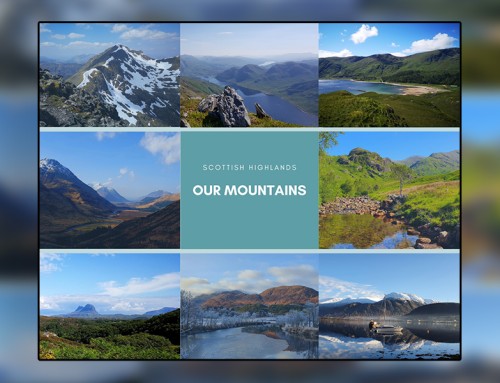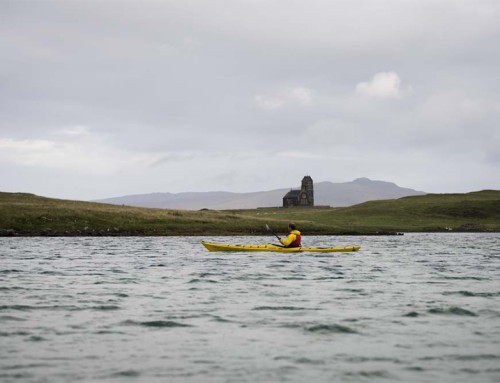Icelanders are lucky enough to have plenty of hot water, and they use it for many useful things, like heating their houses and bathing and have done so for quite a long time. There is just something about sitting in hot water in bad weather that sparks a sense of relaxation and enjoyment.
While bathing in the hot water Icelanders have always liked doing that with each other, and to this day it is a very important part of the Icelandic culture, to go to the swimming pool, who most are geothermally heated. In Iceland, the weather is too bad for most part of the year to have central squares where people come together and communicate like in many other countries, so Icelanders go to the swimming pools, sit in the hot tubs and chat about current events. The swimming pools are one of the places it is thought to be socially acceptable to talk to strangers. In the hot tubs, people can unwind, relax, disconnect from everything, phones, work, email etc. and just be out in the fresh air in the hot water in the companies of others doing the same things, it really is therapeutic for both body and soul. As stated in research conducted in the United Nations Geothermal Training Programme:
‘’While the drive for bathing remain unchanged, bathing practices have evolved into refined cultural traditions and sophisticated therapeutic treatments that rely on modern technology for proper execution.,,
For more information on this research see here.
The importance of swimming pools for Icelanders became very clear when Covid-19 hit, and the pools were closed for weeks. When the swimming pools reopened again (they have twice been closed when this is written, first for almost eight weeks and the second time for four weeks) people gathered in long lines at midnight all through the night just to get a little taste of the good stuff they had been missing. You can read about BBC’s discussion of the opening after the first shut down here.
Going to the swimming pool and meeting up in the hot tubs is such a big part of many people’s lives, especially the older generation who go to swim and meet people both for their physical and mental health. It is a well-known fact in Iceland that lying in hot water is magical.
Lying in the water out in the fresh air, weather it is in the city, towns or out in nature in completely natural pools, just does something to you. This is something Icelandic people have known for a long time now, the magical benefits of combining water, fresh air and relaxation.

Arndís Lára
Over the past 10-15 years Iceland has become a very popular destination for tourism.
The Blue Lagoon is one of the most popular tourism destinations in Iceland, no wonder it is beautiful there and probably the ultimate spa experience you can have in Iceland. But in recent years Icelandic tourism companies have become to realize that this special part of our culture, the stewing in hot water in nature with others could very well be shared with our guests to a greater extent, if we love it, they will surely love it to!
Over the past year’s wellbeing/spa/swimming pools have been popping up all over the country, not in the typical form Icelanders are used to, but a sort of mix of nature pools, regular swimming pools and fancy spas, which makes for wonderful bathing spots. To name a few:
Vök Baths located on the lake Urriðavatn in East Iceland, you can lounge and relax in the pool and hot tubs, while enjoying amazing views, and if you are feeling brave you can jump from your hot tub to the icy cold lake for a swim. Vök Baths
Secret lagoon is an old swimming pool in the South part of Iceland that have been renovated, it is very raw, it is in a greenhouse farming area and you can take a walk through a geothermal area feeding the pool and jump in the lovely hot water afterwards. Secret Lagoon
Krauma is a luxury geothermal baths and spa at Deildartunguhver, Europe’s most powerful hot spring. It is in the West part of the country and you can enjoy the luxury and the view over an agricultural area. Krauma
Giljaböð also in the West part welcomes you after a hike through remote Icelandic wilderness with a geothermal soak in pools nestled in a magnificent highland canyon. Giljaböð
There are many others and more coming. The hotels have also been moving in the wellbeing sector more and more, the hotels in Iceland used to be for dining and sleeping, now more hotels offer a holistic experience, which often include a spa or at the very least the access to a hot tub.
Hikers can also bathe in many totally natural hot pools located in various areas, reaching from the seashore into the highlands, with Landmannalaugar probably the most visited one and Strútslaug is also a popular one.

Hulda Laxdal
Due to Covid-19 the tourism industry collapsed in Iceland like in other places of the world and there has been discussion among parties within the sector regarding the continuation. Among other issues it has been discussed whether Iceland wants to continue as before Covid-19 or look for new ways. At the Global Wellbeing Institute GWI, it is stated that health-promoting tourism has grown much faster in recent years than other sectors of tourism. They state that wellness tourism grew by 6.5% annually from 2015–2017, more than twice as fast as tourism overall (3.2% annually, based on Euromonitor data).
Given these findings, there may be a progressive opportunity for Icelandic tourism operators to further link their products to wellbeing options and take advantage of this strong cultural hot tub heritage to utilize in the tourism sector and create value for our guests and for us.
Hulda Laxdal Hauksdóttir and Arndís Lára Kolbrúnardóttir
Framhaldsskólinn í Austur-Skaftafellssýslu





